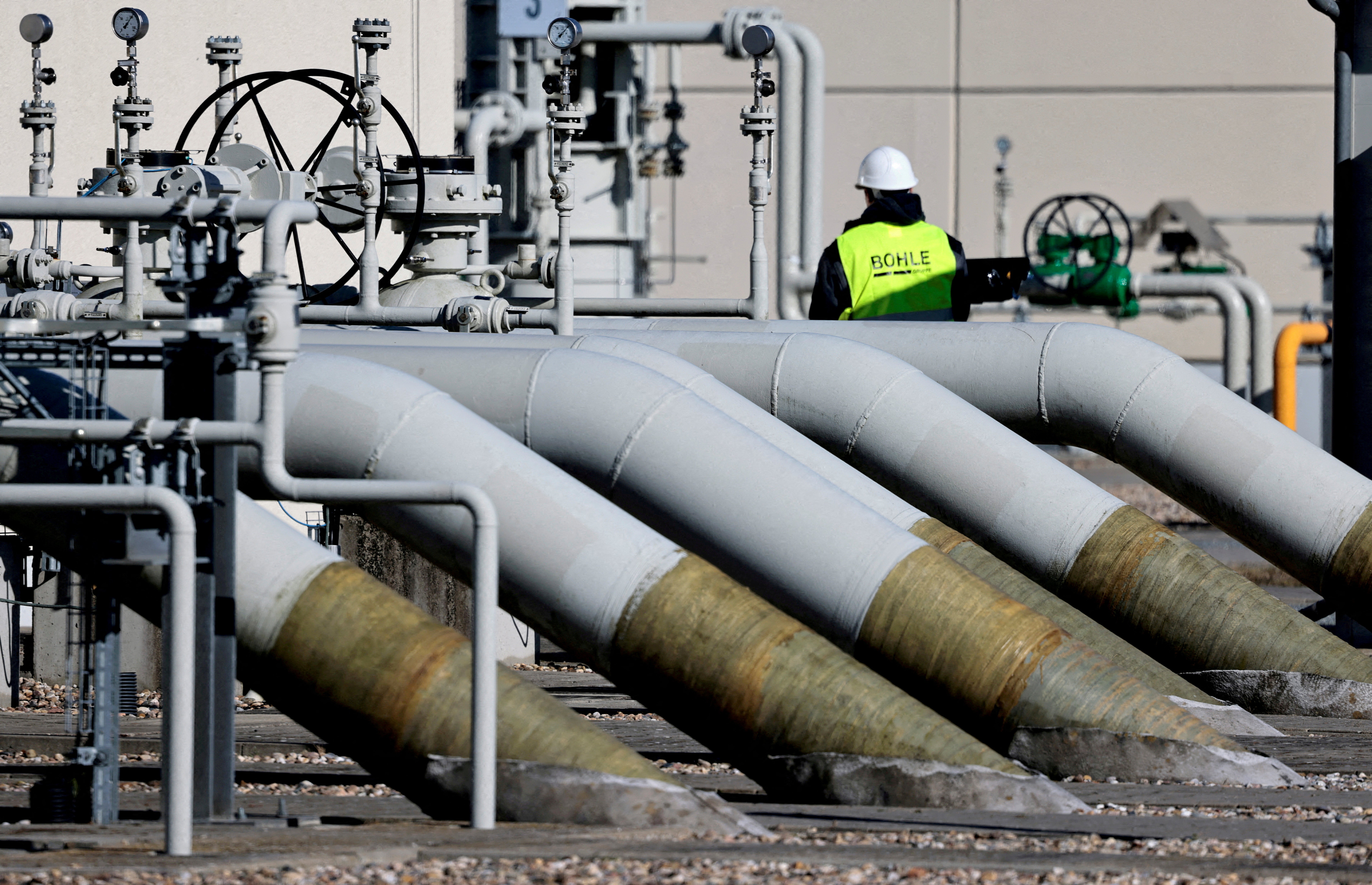Germany to pay December gas bills for households and businesses in new energy crisis plan
Europe’s largest economy must cut consumption by 20 per cent to avoid potential shortages, expert warns

Your support helps us to tell the story
From reproductive rights to climate change to Big Tech, The Independent is on the ground when the story is developing. Whether it's investigating the financials of Elon Musk's pro-Trump PAC or producing our latest documentary, 'The A Word', which shines a light on the American women fighting for reproductive rights, we know how important it is to parse out the facts from the messaging.
At such a critical moment in US history, we need reporters on the ground. Your donation allows us to keep sending journalists to speak to both sides of the story.
The Independent is trusted by Americans across the entire political spectrum. And unlike many other quality news outlets, we choose not to lock Americans out of our reporting and analysis with paywalls. We believe quality journalism should be available to everyone, paid for by those who can afford it.
Your support makes all the difference.Germany is to pay most of the nation’s December gas bills as part of an effort to shield citizens and the economy from the energy crisis fuelled by Russia’s war in Ukraine.
Berlin has riled EU neighbours by allocating up to €200bn (£175.5bn) for a “defensive shield” to ease the strain, amid warnings in Berlin that Europe’s largest economy must reduce its gas consumption by 20 per cent to prevent a potential shortage this winter.
Chancellor Olaf Scholz’s government announced on Monday that it would “work very quickly on implementing” a two-stage plan recommended by an expert panel which advised ministers to shoulder the cost of December gas bills for households and small and medium-sized businesses.
This would be followed by a year-long “gas and heating price brake” due to kick in by March, said the panel’s co-chair Veronika Grimm.
In a plan which the group insisted will still incentivise people to use less gas this winter, households will pay 12 cents (11p) per kilowatt hour for the first 80 per cent of the amount they used in 2021.
That “corresponds roughly to the price level that is expected in the future”, Ms Grimm said, adding that the plan aims to introduce a “new normal” but prevent price rises beyond that.
“It’s not going to be the case that the price goes back down to seven cents in the future – we won’t receive Russian gas for a long time.”
Last month, explosions ruptured the Nord Stream pipelines built to deliver gas from Russia to Germany. Both Moscow and Berlin had already halted supplies along the two pipelines, however – with president Vladimir Putin believed to have cut gas supplies to the bloc by 88 per cent in the past year, as prices soar.
The panel’s co-chair Siegfried Russwurm, head of the Federation of German Industries, warned on Monday that gas price rises are posing an “existential” threat to an increasing number of companies.
“This is not just about the fate of individual companies and their jobs, it is about the strength and the export successes of German industry, because they are the backbone of the German economy,” he said.
Under their proposals – costed at around €90bn (£79bn) – businesses are expected to pay 7 cents (6p) per kilowatt hour for 70 per cent of their 2021 gas use, starting from January.
The panel, which included representatives of industry and trade unions, scientists and politicians, presented its conclusions to Mr Scholz and the country’s economy and finance ministers on Monday.
Many European countries have proposed similar subsidies on fossil fuels in the face of soaring prices. But some of Germany’s neighbours have criticised the huge sum Berlin is setting aside, arguing that it will price others out of the market.
Mr Scholz argues that the criticism is based on a misunderstanding of his government’s plans and says Germany’s subsidy will prevent a shortage of gas that might occur under a system of enforced price caps proposed by other countries. He also has noted that it applies to a relatively long period.
His government said it would work very quickly to implement the panel’s proposals, but noted that a check on whether they comply with European Union law will be necessary, and insisted that Berlin “will act in European solidarity”.
Russia started reducing gas supplies to Germany through the Nord Stream 1 pipeline in June and cut them off completely more than a month ago, prior to the explosions. The Nord Stream 2 pipeline had been due to open this year, but Germany postponed granting it an operating licence after Mr Putin’s invasion of Ukraine.
Prior to the supply disruptions, Germany received more than a third of its gas supplies from Russia, and relied on Moscow for 55 per cent of its supplies before the war in Ukraine.
Additional reporting by AP


Join our commenting forum
Join thought-provoking conversations, follow other Independent readers and see their replies
Comments